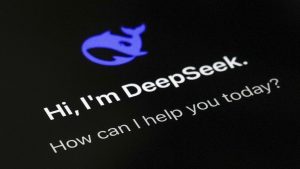Virtual Employment Status Lawyers: Artificial Intelligence Supporting the Legal Profession, written by Dave Chaplin.
The legal profession is the latest to begin embracing artificial intelligence (AI) to support the work carried out by human experts. AI is already proving to be an effective tool to drive efficiency in various areas of law. Following recent activity on both sides of the employment status debate, we explain how AI can be used to help tackle a topic as complex and subjective as employment status case law.
Employment status, and how it is determined, has been under the microscope recently following the emergence of the ‘gig-economy’, where companies such as Uber and Deliveroo have been taken to tribunal by workers contesting their ‘self-employed’ status in search of employment rights.
In a more focused context that is less in the media spotlight, the reform of the Intermediaries Legislation – or ‘IR35’ – has driven up demand for employment status knowledge and expertise. These reforms, which make public sector hirers responsible for determining the employment status of the one person company contractors they engage, add huge risks to the users of contingent labour. An incorrect assessment of a genuine contractor can result in a substantial tax hit to public sector organisations still grappling with austerity. The changes have intensified the need for legal assistance in this area.
Clarity is needed, and fast. Contractors and their public sector clients are under pressure to prove their self-employed status, but manual solutions can’t respond quickly enough. Meanwhile, gig-economy workers are lacking a cost-effective specialist resource to help them understand where they should be given rights. This is where AI comes into play.
AI is Well Established Across Some Professions
For many industries, AI is nothing new, with medicine being an early adopter. In 1972, Edward Shortliffe introduced the medical profession to MYCIN, an AI system used to identify bacteria and prescribe appropriate treatment. Research found that MYCIN was able to propose an acceptable therapy at a better rate than infectious disease experts judged on the same criteria1.
More recently, in January 2017, a Stanford University study found that AI repurposed from software developed by Google could identify skin cancer from photographs with the same accuracy as board-certified dermatologists2. Working in tandem with general practitioners, the same experts have claimed that AI has the potential to transform treatment, and could soon help guide referrals.
AI’s development in the legal sector may not be quite as advanced – yet. However, it is already being used to drive efficiencies when used in an analytical context. In 2016, JPMorgan Chase used natural-language processing software to assess 12,000 commercial-loan contracts3. Subsequently, something that would have taken an estimated 360,000 hours for legal practitioners to complete was achieved in a matter of seconds.
How Can AI Help Determine Employment Status?
Employment law is incredibly complex, and so legal experts rely heavily on knowledge of hundreds of past cases and tribunal rulings when examining status. Rarely is a worker’s situation clear, which makes employment status evaluation a potentially onerous and time-consuming task.
For AI to evaluate employment status, it needs to know the legislation and understand the case law, and use this to evaluate the contextual relevance of each factor impacting employment status. All the while it would need to rigidly apply the same logic that the law itself requires when making its status assessment.
Meet Renoir, The World’s First Virtual Employment Status Lawyer
Renoir, the virtual employment status lawyer developed by ContractorCalculator, is an AI-powered virtual lawyer that can achieve exactly that. The key component in our IR35 compliance solution ‘IR35 Testing’, Renoir sifts through a huge amount of data captured directly from workers such as contractors via a detailed interactive online questionnaire.
It accurately determines the employment status of each worker based on their responses, pinpointing their position along a 19-point scale, precisely indicating where they stand along the self-employment/employment spectrum.
Renoir is the result of extensive development and research in collaboration with a large team of employment status lawyers and software developers completed over a seven-year period. As a result, Renoir delivers the same outcomes determined by the judges when tested against all 21 IR35 tribunal cases to date.
AI Drives Efficiency
As Renoir demonstrates, one obvious advantage of adopting AI is the major efficiency gains available to legal experts. We estimate that it would take a single legal expert roughly a year to conduct 1,000 reviews. Once the questionnaire has been completed, Renoir can carry out an evaluation within a second, and can comfortably cater for tens of thousands of users in a single day.
When applied to employment status, and indeed more broadly across the legal profession, this shows that AI can save countless man-hours by interpreting huge sets of data in a fraction of the time. Consequently, professionals can have upfront analysis to hand within moments, enabling them to filter out cases that don’t require any further attention, instead focusing their expertise strictly where it is required on higher value work.
Harnessing Big Data for Greater Insight
Conducting a detailed analysis of a worker’s employment status in such a short space of time means high volumes of assessments can be completed each month. This is not only far beyond the capacity of a human employment status expert; it also generates huge datasets.
Renoir analyses thousands of users each month, and our solution has conducted more than 100,000 assessments to date. It is these large quantities of valuable data being accumulated that fuels the big data approach that Renoir, and many other AIs, adopt.
With such a large sample of data drawn from a number of evaluations that a human expert would take years to complete, big data enables Renoir to uncover new insights. With AI, legal professionals can identify patterns and trends, compare benchmarks and highlight outliers. This in turn can be used to inform and guide decision making.
How Does Self-Learning AI Improve Accuracy?
The product of carefully developed and refined algorithmic structures, analysis derived from AI is already incredibly precise. What is really exciting is that most AI solutions are only going to become more accurate with time.
In addition to applying pre-programmed knowledge, Renoir, like many other AI systems, becomes more sophisticated with each evaluation completed. Self-learning AI means Renoir can identify outliers and changes in answers over time, in certain sectors or the industry as a whole. As a result, it is consistently able to adapt to the current state of knowledge, and can teach itself about different contexts.
AI in the Legal Sector – The Future
Stanford University’s research exploring the use of AI in identifying skin cancer is just one example demonstrating that partnering humans with an AI solution delivers more effective outcomes than either in isolation. The legal sector is no different.
Our objective is to enable experts to apply our solution to help protect the status of genuine self-employed contractors, whilst protecting those forced into the false self-employment found in the gig-economy.
But employment status law is just one example demonstrating how advanced AI can be used to augment human expertise, whilst introducing efficiencies, improving quality and trimming unnecessary admin and delivering otherwise unimaginable insight. As AI continues to make inroads into other areas of law, it’s surely only a matter of time before it is seen as an indispensable tool in the legal solutions toolbox.
Dave Chaplin is CEO and founder of ContractorCalculator, a comprehensive online resource for freelancers and contractors that has become the expert guide to contracting.
Dave Chaplin is a former IT contractor, founder and CEO of ContractorCalculator, and author of The Contractors' Handbook and Beat IR35: The ultimate guide to IR35 for contractors, agencies and clients.
Started in 1999, ContractorCalculator is the leading independent website for the UK contracting industry, with circa 150,000 unique visitors per month – most of whom are highly-skilled knowledge workers.
Dave Chaplin has lived and breathed contracting since he first took the plunge in 1997. He spent seven years working as an IT contractor in the City of London on critical, cutting-edge IT infrastructure and development projects for several major banking, communications and legal organisations.
About ContractorCalculator’s Online IR35 Review system
ContractorCalculator first designed and built its Online IR35 Review system during 2009 and 2010 which has been enhanced over the last year to address the new IR35 legislation that has come into effect in the public sector. This followed extensive research with experts in employment law, contract law, taxation and IR35 and the expertise acquired over 18 years of monitoring the IR35 legislation.
Underpinned by a powerful bespoke algorithm developed by ContractorCalculator’s CEO Dave Chaplin, the system factors in case law and the relative importance of key tests of employment, such as substitution, control, and mutuality of obligation (MOO).
Over 100,000 contractors have taken the test since it was first launched in 2009.
References:
(1) Negnevitsky M. Artificial Intelligence: a guide to intelligent systems. 3rd ed. Addison Wesley Publishing; 2011.
(2) Gallagher J. Artificial intelligence ‘as good as cancer doctors’. BBC. Online article. Available from: http://www.bbc.co.uk/news/health-38717928 [Accessed 21st June 2017]
(3) The Economist. Machine-learning promises to shake up large swathes of finance. Online article. Available from: http://www.economist.com/news/finance-and-economics/21722685-fields-trading-credit-assessment-fraud-prevention-machine-learning [Accessed 21st June 2017]




















